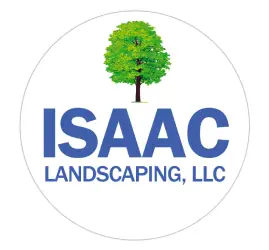The Role of Healthy Soil in Boosting Plant Growth
A flourishing garden relies heavily on the health of its soil. Healthy soil acts as a foundation, providing essential nutrients and the right environment for plants to thrive. By understanding soil health, gardeners can improve plant growth, enhance water retention, and prevent diseases. In this guide, we will explore the key components that contribute to soil health and offer practical tips on maintaining it for optimal garden performance.

The Importance of Nutrient-Rich Soil
Nutrient-rich soil is vital for a thriving garden. It supplies plants with the necessary elements they need to grow strong and healthy. Essential nutrients like nitrogen, phosphorus, and potassium support various plant functions. To achieve nutrient-rich soil, it’s crucial to regularly test and amend your soil based on the specific needs of your plants. Incorporating organic matter such as compost enhances the nutrient content and improves soil structure.
Maintaining Proper Soil Structure
Soil structure greatly influences a garden’s overall success. Well-structured soil allows roots to penetrate easily, facilitating better access to water and nutrients. Compacted or poorly structured soil can hinder plant growth. Techniques such as aeration and adding organic material help maintain proper soil structure. Experts often recommend evaluating these factors during the initial stages of garden design to ensure lasting benefits.

The Role of Microorganisms in Soil Health
Microorganisms play a crucial role in maintaining healthy soil. These tiny organisms break down organic matter, releasing nutrients that plants can absorb. They also aid in disease suppression and improve soil structure. Encouraging beneficial microorganisms involves minimizing chemical use and incorporating practices like crop rotation and cover cropping. This approach should be considered when planning any new garden design project.
Water Management Practices
Effective water management is essential for maintaining soil health. Proper watering techniques help prevent erosion and nutrient leaching while supporting plant growth. Overwatering or underwatering can lead to poor plant performance and unhealthy soil conditions. Using drip irrigation systems and mulching can optimize water usage by ensuring consistent moisture levels in the soil.
Benefits of Cover Crops
Cover crops are an excellent tool for enhancing soil health. They protect against erosion, suppress weeds, and add organic matter to the soil. Common cover crops include clover, rye, and vetch, each offering unique benefits. By planting cover crops during off-seasons, gardeners can improve their soil’s fertility and reduce dependency on synthetic fertilizers.
Testing and Amending Soil
Regular soil testing is essential for maintaining a flourishing garden. Tests provide valuable insights into nutrient levels and pH balance, allowing gardeners to make informed decisions about amendments. Based on test results, you may need to add lime to adjust pH or incorporate specific fertilizers to address deficiencies. Testing helps ensure that your soil remains conducive to healthy plant growth.
Expert Tips for Sustaining Soil Health
To sustain soil health in your garden, follow expert recommendations:
- Avoid over-tilling to preserve soil structure
- Incorporate diverse plant species to promote biodiversity
- Use organic fertilizers instead of chemical alternatives
- Practice crop rotation to minimize pest buildup
- Regularly add organic matter such as compost or mulch
Nurturing Your Garden With Sustainable Practices
Sustaining soil health requires a commitment to ongoing care and sustainable practices. Employing techniques such as cover cropping and regular soil testing ensures long-term viability. For those interested in exploring more about maintaining a vibrant garden landscape, contact Isaac Landscaping LLC at (719) 930-1845. Our experts provide comprehensive advice tailored to local conditions in Colorado Springs, CO, helping you cultivate a beautiful and robust garden.
